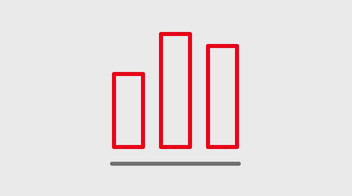Law and contracts
Vehicle deliveries in 2023 were again largely constant. Nevertheless, operating difficulties in regional and long-distance transport may continue to arise as a result of delayed vehicle deliveries and vehicle defects. In regional transport, this may result in contractual violations or non-compliance toward the contracting organizations. Higher expenses, penalty payments and lower fare revenues are the result. Ensuing damage claims are asserted against the manufacturers.
Transport contracts increasingly provide for stricter rules for train cancellations (services not rendered) and contractual penalties (services not provided in the required quality). The main drivers of risk are infrastructure disruptions and missed punctuality targets.
In addition, risks, in particular from warranty and other liability provisions, may also arise from other contractual relationships. This relates, for example, to the sale of companies, real estate or other material assets.
Provisions have been made for existing legal and contractual risks based on an assessment of their probability of occurrence.
Risks also result from lawsuits due to noise emissions from rail operations. To address supposedly unreasonable annoyances, residents are demanding active noise protection measures, financial compensation for passive noise protection measures and damage compensation payments.
Compliance with current laws, company directives and recognized regulatory standards is the task and duty of every DB Group employee. The compliance organization serves to ensure compliance with the rules.
With its very high procurement volume and about 20,000 suppliers, DB Group is one of the largest purchasers in Germany. Large-scale capital expenditures mean that the infrastructure business units in particular are exposed to a significant risk of becoming the target and victim of corruption, cartel agreements or fraud. As a provider of grants, the Federal Government places high compliance demands on DB Group, with its anti-corruption guidelines.
Opportunities arise from the discovery of cartels that operated in the past and the enforcement of claims for damages against cartel members. DB Group is seeking compensation for damages in over ten cases. This relates, amongst other issues, to cartels in trucks, cars (known as the car cartel and emissions scandal), tracks, air freight, elevators and escalators, prestressing of steel, and girocard. In more than ten other cases, DB Group is still determining if damage has been caused. DB Group has been using an innovative cartel screening tool since early 2022. In that time, the tool has identified conspicuous patterns in pricing or bidding behavior and can provide valuable information on illegal supplier agreements. We are in discussions with various competition authorities and the OECD on this new approach to antitrust prevention and detection.
From the sale of several former Brenntag US companies by DB US Holding Corp. in 2007, the acquirer is requesting the payment of an adjustment (reduction) to the purchase price, as agreed in the underlying purchase agreement and occurring in certain circumstances, in the amount of USD 45 million. DB US Holding Corp. is currently contesting the existence of this claim. In order to enforce its claim, the acquirer has initiated arbitration proceedings.
There are also risks associated with ongoing proceedings (national authorities or the European Commission) against companies in DB Group or the Federal Republic of Germany, the outcome of which and the potential consequences of which are not yet foreseeable. The current state aid audit procedure of the European Commission for DB Cargo entails financial risks for DB Cargo and DB Group. The Federal Government, DB Group and the European Commission are in active communication on this. The transformation program initiated by DB Cargo should have a positive impact on this.


